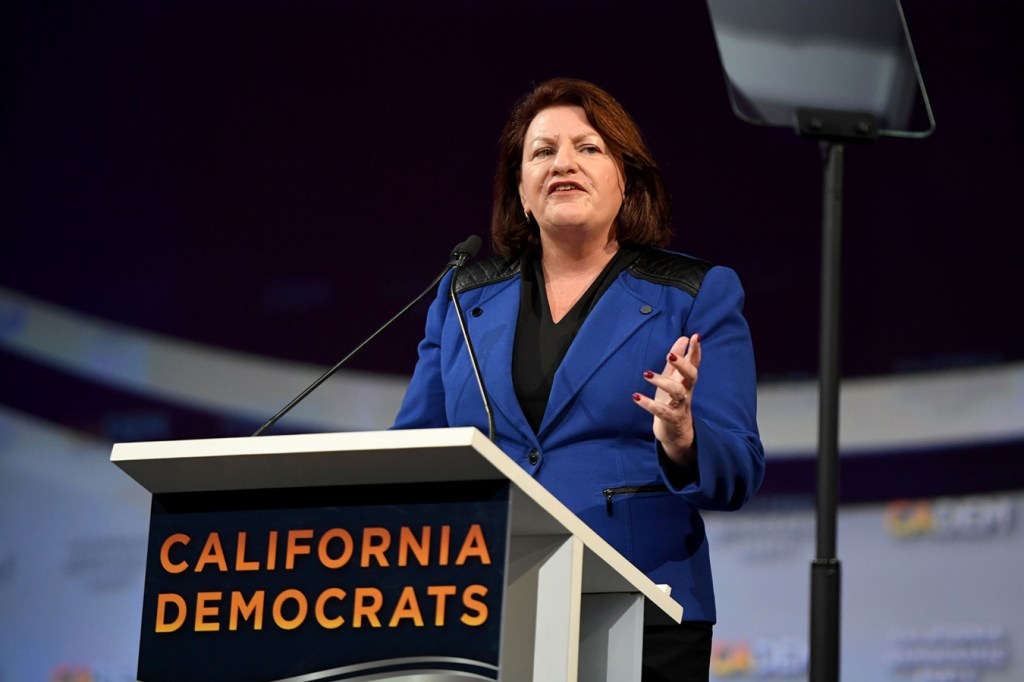SACRAMENTO — The weekend before California shuttered its Capitol building, Senate leader Toni Atkins spent hours on the phone ― taking the roles of a student learning from epidemiologists and a legislator discussing with colleagues how the country’s most populous state should respond to the COVID-19 crisis.
Like many lawmakers from New York to Washington state, Atkins and her fellow Sacramento legislators find themselves in uncharted territory.
Legislative sessions are on hold. Sweeping initiatives are shelved. State budgets are already squeezed by massive spending on COVID-19.
On March 19, Gov. Gavin Newsom issued a statewide stay-at-home order in a bid to slow the spread of the novel coronavirus. There is no end date on the order. Some public health experts believe such measures would need to be in effect for many months to be effective.
California’s legislature is scheduled to reopen April 13, but with lawmakers practicing social distancing, it’s not clear that will happen.
This leaves California’s legislative leadership with an unusual challenge as budget deadlines draw near: How do you hold public hearings to discuss spending priorities and vote on bills when people aren’t supposed to gather? Do other legislative priorities take a back seat to the coronavirus?
On Tuesday, Newsom’s budget director sent a letter to state agencies saying they “should have no expectation of full funding for either new or existing proposals” because of deteriorating economic conditions tied to the spread of the virus. Atkins, a Democrat from San Diego, talked to California Healthline’s Samantha Young about how the legislature can move forward.
Her comments have been edited for length and clarity.
Q: Did you have to educate your caucus about the seriousness of the coronavirus and why the Capitol should shut down?
We were having to educate ourselves about what all this meant. I ran a community clinic three decades ago, but I’m not up on the latest and greatest on health care, particularly public health, rules, regulations, recommendations. So, I pulled in different members of the Senate with different levels of expertise.
It hasn’t been without lots of questions, anxiety and concern, but we’ve worked through it, and I feel pretty good about the Senate and the legislature’s response — and in working with the governor.
Q: One Republican lawmaker said the legislature’s approval of $1.1 billion in coronavirus spending showed an incredible degree of trust in Gov. Newsom. Do you agree?
I think it’s an issue of us understanding the gravity of the situation. My incredibly strong partner has been the Republican leader, Shannon Grove from Bakersfield. We were in sync about what we needed to do. I would say a measure of trust, but I also just think we were prepared to step up and do what we needed to do.
Q: Lawmakers have a constitutional mandate to pass a budget by June 15. Will you be able to come back into session and do that?
It’s not exactly clear right now. If it’s not likely we can go back in session because we need to be following physical distance guidelines, then I think we are going to have to figure out how to do this remotely and meet the intent of transparency, the public’s right to participate ― and how we’re supposed to conduct government.
I would imagine if we’re still in the situation we’re in, as the weeks pass, in order to protect public health, we may have to look at a baseline budget and reconvene when we can to do the work that’s necessary. It’s a day-by-day and week-by-week assessment.
Q: The governor and lawmakers had an ambitious agenda to fight homelessness and expand health care. Will these things have to be put on hold?
In San Diego, we are moving to make better space available so that non-symptomatic unsheltered homeless have a place to go, and we have county public health in there triaging and making sure we are providing services.
It’s the first time I’ve seen this kind of collaborative, efficient effort. In the county, they are seeing this as an opportunity to have the medical staff in place to assess all of the individuals, and they want to bring in mental health and alcohol and drug addiction, too. And they’re hoping that because of this public health challenge, maybe we will find a way of working collectively and actually get people into units of housing.
Q: What will your priorities be for the state budget? Will the coronavirus overwhelm it?
It’s going to be basic services: public safety, education, public health. The very, very basics. We have worked our way back over a decade of refunding education, putting more money into health care, putting more money into fire protection. Those are things we’re going to want to continue to do.
I think we can adjust our level of expectations as the reality sinks in that we’ve got to be concerned about preserving our economic viability in California. We may be the fifth-largest economy in the world. We may have a budget reserve, but a billion dollars can go very quickly in a crisis.
Q: You described health care as one of the basics. What about the governor’s proposal to extend health care benefits to undocumented seniors?
Undocumented seniors who need health care, who have worked and contributed to our economic success, should be covered. I see that as a key public health thing. That is a priority.


